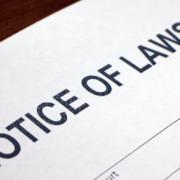If you are involved in a custody dispute, there may be at least one child custody evaluation. It is a psychological assessment involving the parents’ living conditions, family dynamics, mental health problems, and other relevant concerns to recommend what is in your child’s best interests.
Court-ordered evaluations are usually performed if the parents disagree on custody. If one is done fairly and competently, its recommendation may push the parties to settle on terms consistent with its findings.
Who Will be Interviewed?
Court-ordered custody evaluations are established by Pennsylvania and New Jersey court rules. The parties can also commission their investigation. A custody evaluator should interview:
- The child
- The parents
- Other people residing in their homes
They may also speak to teachers or counselors at school and review relevant medical or psychological treatment records.
What Will be the Basis of the Evaluator’s Findings?
The evaluator will consider:
- The facts
- Their understanding of the parties and the situation
- The parents’ views
The ultimate purpose of the assessment is to determine what custody arrangement is in the child’s best interest. The evaluator will consider the factors the court will use when making a decision, including:
- The parents’ stability
- The child’s relationship with them
- A parent’s drug or alcohol abuse
- A parent’s physical, mental, and emotional health
- A parent’s willingness to encourage their child to continue their relationship with the other parent
A custody evaluation could take months and cost several thousand dollars. If the parties cannot agree on who will pay for an assessment ordered by the court, a judge may decide for them.
How Should I Prepare for the Evaluation?
You, your child, and any other family members interviewed should not see an evaluation as an invasion of privacy or a burden. It is an opportunity to tell your side of the story and address any concerns the other parent has raised.
There will be a visit to your home, so put yourself in the evaluator’s shoes. What would you look for? Your home should be clean and neat. Any obvious defects or problems with your home should be repaired. Mow your lawn. Dress neatly and comfortably.
You are not going to court, but you are not going to the gym, either.
What Should I Say to the Evaluator?
To be most effective, those interviewed (especially your child) should be open and honest. You will not be considered credible if you are overly critical of the other parent, appear biased, and are found not to be telling the truth.
You can maximize your ability to tell your story by:
- Discussing your child’s parenting history, including both parents’ strengths and weaknesses.
- Talking about your child, their interests, needs, and any difficulties they have had.
- Addressing how your child has changed since you and the other parent separated or the event, if any, that created a perceived need for the evaluation.
You are best served by focusing on your child’s best interests and managing your emotions. Balance stating your legitimate concerns about the other parent while not bad mouthing or bashing them. You should also avoid playing an amateur psychologist by diagnosing them with a condition you think they suffer from.
What Happens to the Report?
The findings, including a recommendation, will be in a confidential report to the court that you and your attorney can read. If either party objects to the report, the evaluator can be cross-examined at a trial. If your case does not settle, the judge will probably rely on a court-ordered evaluation when issuing a ruling, but they should be open to fair criticism and legitimate assessments, if any, paid for by the parties.
Child Custody Attorneys You Can Trust
Karen Ann Ulmer, P.C. attorneys are skilled in developing the evidence that judges need to make child custody decisions. We will work with you to build a persuasive case to achieve your goals and protect your rights. If you have questions about custody issues or need legal representation, call us at (215) 752-6200 today.












